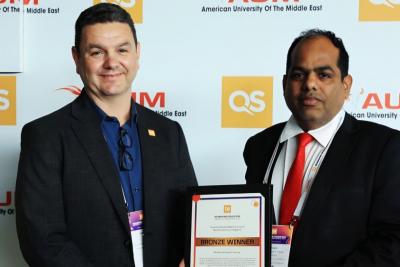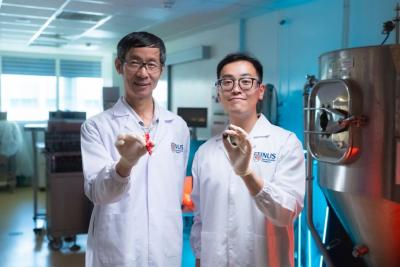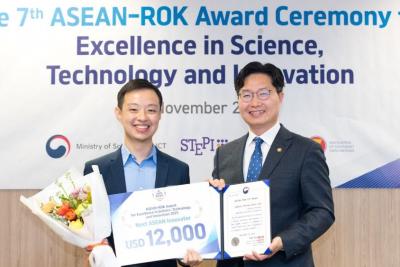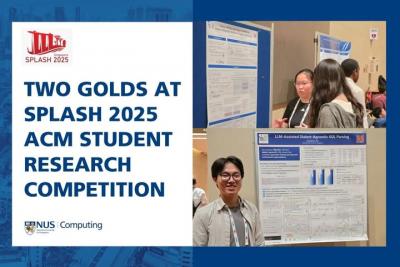NUS nghiên cứu vật liệu siêu hút ẩm trong bộ quần áo bảo hộ cá nhân
A team of researchers from the National University of Singapore (NUS) has developed a novel super-hygroscopic material that enhances sweat evaporation within a personal protective suit, to create a cooling effect for better thermal comfort for users such as healthcare workers and other frontline officers. This invention was validated through laboratory tests conducted in collaboration with researchers from HTX (Home Team Science & Technology Agency) in Singapore.
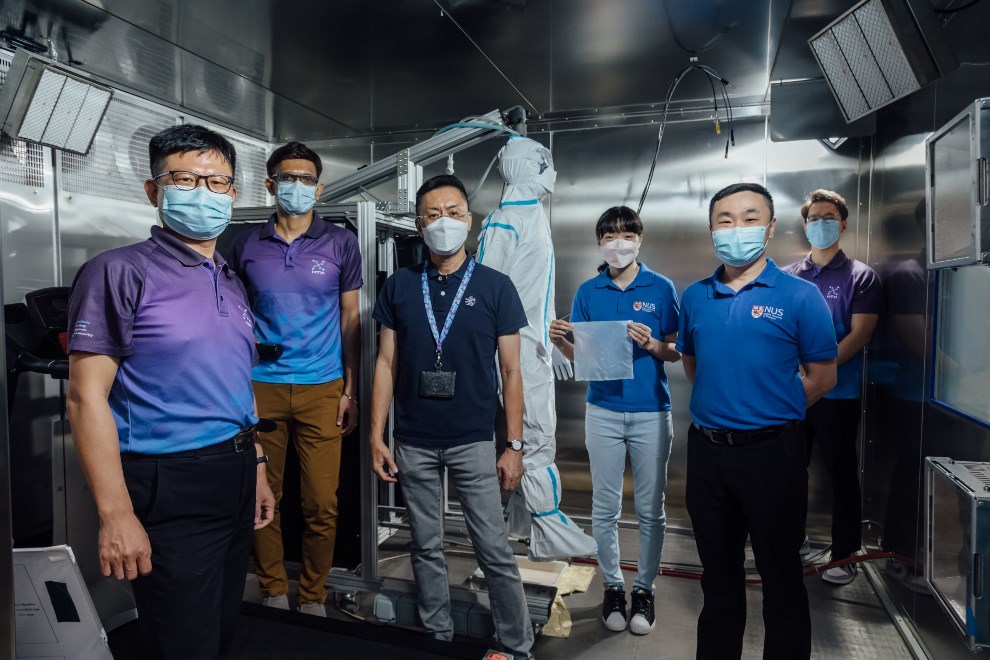
The new desiccant film, which is biocompatible and non-toxic, has fast absorption rate, high absorption capacity and excellent mechanical properties. This means that the material is very robust and durable for practical applications such as for protective suits worn by healthcare workers. It is also affordable, light-weight, easy to fabricate and reusable.
“Under room temperature of about 35 deg C, a healthcare worker who dons a protective suit for one hour typically experiences a heat index of about 64 deg C. This causes discomfort and prolong thermal strain can result in heat stroke and even death. Our novel composite moisture-trapping film achieves a cooling effect within the protective suit via evaporative cooling – by increasing sweat evaporation from the skin,” explained research team leader Assistant Professor Tan Swee Ching, who is from the Department of Materials Science and Engineering under the NUS College of Design and Engineering.
Attaching a piece of novel composite film in a protective suit – for example at the back of the suit – could bring down the heat index by about 40%, remarkably lowering the likelihood of heat stroke.
This invention was published in prestigious scientific journal Small on 20 February 2022.
Xem chi tiết tại đây








